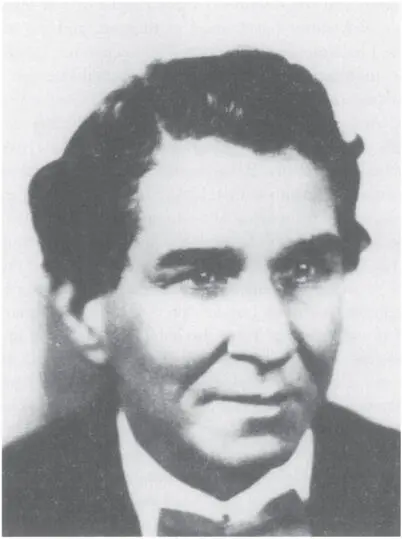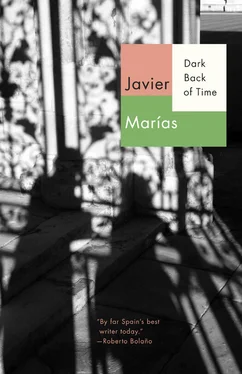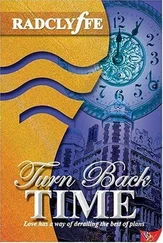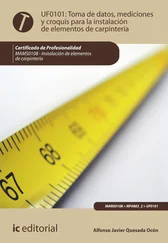
“Leaving me and a daughter.” So the news I received some time ago but am only now pondering must be true, despite everything. Shiel may not have been entirely sincere, however, because he also reports that before Lina’s death he had rejected her in a letter of June 12 1903, returning to London shortly thereafter and abandoning her in Paris with her daughter. Apparently Carolina died at the end of that year at the age of only twenty-three, who knows how much the rejection and abandonment of the man who had prayed to get her had to do with it. An older sister, Salva, and perhaps a younger one, Micaela, the two aunts, took little Lola to Madrid, she was a three-year-old then who may not have remembered her father if she never saw him again, a little Madrileña who must be dead by now, or no less than ninety-seven years of age, and the bearer of these distant tidings — arrived from Dayton, Ohio — asks me about her and her Spanish history, asks that I apply myself and track her down and find out about her life and learn about her descendents, if she had any. Perhaps I should try it this time, despite my disinclination toward journalism, not to mention biography, which all too frequently has become among the most vile and defamatory activities of our time. Or else, as always, I’ll have to wait for Lola Shiel or her ghost or offspring to come to me and tell me.
This girl or old woman or dead woman must also have moved, from the age of three, through the other side or dark back of time, among the things that are both real and fictitious, that disappear or never appear and yet are known because they have been spoken of. I don’t know, anything is possible. It may be that the girl, though decrepit, is still alive, or that she died long ago, perhaps during the war, gunned down by Hugh Oloff de Wet’s Nieuport or bombarded by a Junker of the Condor Legion in the service of the fake admiral; put to death by the militia like my mother’s younger brother, my uncle Emilio, or, as my father could have been and so many others were, by the triumphant Franquistas with their informers and henchmen, still unpunished, their names concealed. Or she may not have been, she may have been granted more than enough time to watch a daughter grow, a daughter who would now be a venerable matron, one of the many we see at mid-afternoon, taking over our streets. And since Shiel’s lineage was primarily female (perhaps he was from Madaninó, he was his parents’ first son, born after his eight or nine sisters), it may be that the daughter had, in turn, a daughter of her own, in which case Shiel’s Irish surname, borne by little Lola, would have fallen farther and farther behind, and would only be the fourth surname of that possible granddaughter of thirty-odd possible years, as Manera is my fourth. It may be that I’ve walked past that granddaughter during my rambles across Madrid, because if she exists she could be anyone, and whoever she is she probably doesn’t even know she had an Antillean great-grandfather who was a real monarch of the imaginary, and whose novels are now under my care and management, as his unlikely successor.
She may be the woman I see from my window now, as dawn finds me awake, the woman who is no longer young and waits for the bus with her early-morning weariness, and I can see her smiling slightly today, as if she were daydreaming or couldn’t forget the person she left between the sheets, she’s getting used to him now without realizing it, and that’s what is dangerous, when the departure starts to be feared more than the continued presence of the object of our habit and constancy. She raises one well-shod foot, with a high heel to heighten the silhouette effect of her black stockings, then raises the other, like a wading bird, as she waits for the bus which is not in view, even in the distance, I know because I’m watching from the height of my upper-storey window, I don’t have to stand on tiptoe as she must, enveloped in the advancing light of day that blinds or half-blinds the thirteen streetlamps that are still lit as a testament or reminder of the night that is already past and lost: though the night still impregnates us and isn’t always easy to shake off, just as it isn’t easy to shake off the time that has disappeared, our time or other people’s time or a time that has never come.
Or it may be that the granddaughter of Lolita Shiel is the woman who waits in bed with no impatience, only boredom, for the man with the receding hairline, whose hair looks like a musician’s when the wind ruffles it, the man with the incipient, bluish beard and the loosened necktie who is trying to settle his debts and hasn’t yet been given the knifing he thought he was certain to get, sooner or later. He’s on tiptoe, as well, anxiously calling in a low voice (“Come, come”) to the bus that doesn’t come and that I know isn’t even close to arriving, maybe he’s thinking that the later he gets home the more time she’ll have had to think up and prepare her story, or to move out in his absence, leaving only a note of rejection on a piece of yellow paper taped to the mirror. The wind sends his tie dancing, he’s wearing an antique enamelled pin in it that he hasn’t lost in his gamblings only by a miracle, only because he refused to wager it in spite of the bullfighters’ insistence, they’re greedy at first, they only become magnanimous later. His eyes look almost Oriental and his lips as if sketched on with a pencil—“beaky lips, beaky lips”—the chin is almost cleft, the hands broad, a cigarette in the left one. But everything is still a question of time and time is what the knifing makes fast.
A great deal has yet to be told, some of it recent and some still to come, and I need time. But even not knowing what is to come, I do know that whenever the moment arrives I will go on telling it as I have until now, for no reason and in no particular order, without making an outline or seeking coherence; what I tell will not be guided by any author, fundamentally, though I am the person who tells it; it will not correspond to any plan or be ruled by any compass, or have any reason to make sense or add up to an argument or plot, or answer to some hidden harmony, or even be a story with its beginning and its expectation and its final silence. I don’t think this is going to be a story, though I may be mistaken since I don’t know its ending which may never be put into writing because it will coincide with my own, some years from now, or so I hope. Or it may also survive me. I’m going to stop now and say no more for a while; I remember what I said long ago, in speaking of the narrator and the author who have the same name here: I said I no longer know if there is one of us or two, at least while I am writing. Now I know that of those two possible figures, one would have to be fictitious.
I raise my eyes above the balcony for a moment to shake off the long night and the doubt and perhaps to be only one person again, and when I look back down the bus has come and carried off its passengers. I look at the incongruent lights still lit beneath the sun that is making them insignificant as it rises, and they are time, respectful, benign time that wants to leave some record of what has now ceased, until the sleepy hand of some civil servant takes note of the waste and puts out the light and then puts it out. And even then the passengers are still there, and even then the light has not been put out.
Given that both the author and narrator of this novel spent two years in the same post at the University of Oxford, some statement may be in order on the part of the former, before he finally yields the floor to the latter, to the effect that any resemblance between any character in the novel (including the narrator, but excluding “John Gawsworth”) and any other person living or dead (including the author, but excluding Terence Ian Fytton Armstrong) is purely coincidental as is any resemblance between any event in the story and any historical event past or present.
Читать дальше













